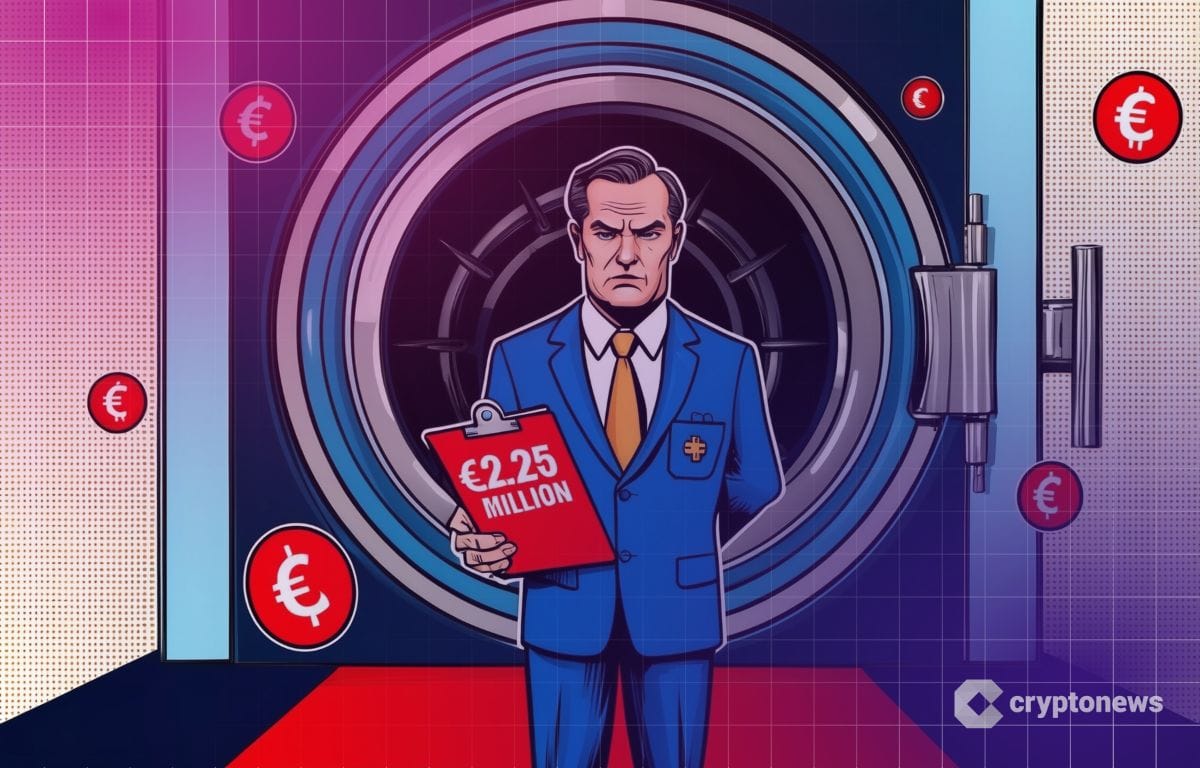Last updated:
 Why Trust Cryptonews
Why Trust Cryptonews

On October 22, 2024, the Dutch Central Bank, De Nederlandsche Bank (DNB), imposed a €2.25 million fine on cryptocurrency exchange Bybit Fintech Limited for operating without proper registration in the Netherlands.
The penalty was part of the DNB’s regulatory efforts to enforce anti-money laundering (AML) and anti-terrorist financing laws. These laws mandate crypto service providers register with the bank to counteract the high risks associated with cryptocurrency’s pseudonymous nature.
Bybit, based in Dubai, reportedly breached these regulations by providing unregistered crypto services in the Netherlands until September 2023.
Dutch Central Bank Vs. Bybit: Is €2.25 Million Too Much?
The registration requirement, established in May 2020 under the Dutch Anti-Money Laundering and Anti-Terrorist Financing Act (Wwft), requires digital asset platforms to report unusual financial transactions to the Financial Intelligence Unit-Netherlands (FIU-NL).
According to the DNB, Bybit’s lack of registration meant numerous transactions potentially linked to illicit activities were not reported, creating loopholes for money laundering and terrorist financing.
To this end, DNB issued the fine based on Bybit’s non-compliance, considering the violation’s severity, scope, and longevity.
Nevertheless, the penalty was adjusted after Bybit transferred its Dutch clientele to a local partner, SATOS B.V., a licensed crypto services provider. Initially, Bybit bypassed the necessary registration.
In response to the DNB’s fine, Bybit acknowledged its past regulatory oversight and emphasized proactive measures to rectify the situation.
The exchange stated that since partnering with SATOS B.V., it has fully complied with the regulatory framework.
“Since September 2023, Bybit has operated under Bybit Powered by SATOS, leveraging SATOS’s Virtual Asset Service Provider (VASP) license accredited by the DNB.”
Bybit’s co-founder and CEO, Ben Zhou, also reiterated the company’s dedication to “responsible growth” and assured customers that it is working closely with European regulators to foster a compliant and transparent ecosystem.
Zhou noted that Bybit’s collaboration with SATOS has fueled significant growth, positioning “Bybit Powered by SATOS” as the second-largest exchange in the Dutch market.
“Currently, Bybit Powered by Satos is growing into the number two exchange in the market with 10 million users.”
The EU’s Markets in Crypto-Assets Regulation (MiCA), which is slated to take effect in December 2024, will require companies to obtain an official license to operate across the bloc.
Broader Implications for Crypto Service Providers in Europe
As cryptocurrency adoption accelerates globally, European authorities increasingly focus on implementing regulations that counter money laundering risks in the crypto industry.
According to a recent report, Central, Northern, and Western Europe (CNWE) is emerging as a major player in the global cryptocurrency market, second only to North America. From July 2023 to June 2024, its on-chain transaction volume was $987.25 billion, making up 21.7% of global crypto transactions.
The DNB’s action against Bybit is part of a more extensive regulatory crackdown in Europe on crypto exchanges operating without proper authorization.
Bybit’s case follows a series of fines imposed on crypto firms across Europe, including Crypto.com, Kraken, and Coinbase.
Compliance with AML and anti-terrorism financing measures is no longer optional but foundational to European operational legitimacy.
Notably, the stablecoin market reached $172 billion by October 2023, with the European Union’s Markets in Crypto Assets Regulation (MiCA) significantly shaping its trajectory.
MiCA introduces strict requirements for stablecoin issuers operating in the EU, including compliance with anti-money laundering (AML) policies, reserve asset protection, and risk management.
As a result, many USD-backed stablecoins may decline in the EU, while euro-backed stablecoins will benefit from these policies.
Major players like Ripple are adjusting to these regulations and securing licenses to operate in Europe, although MiCA compliance heavily burdens European and foreign stablecoin issuers.















